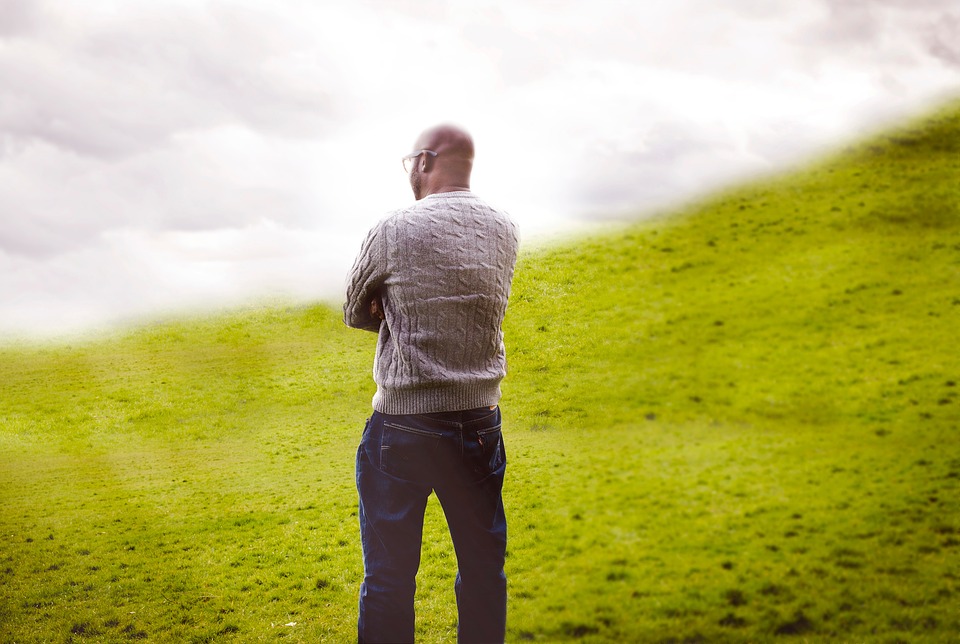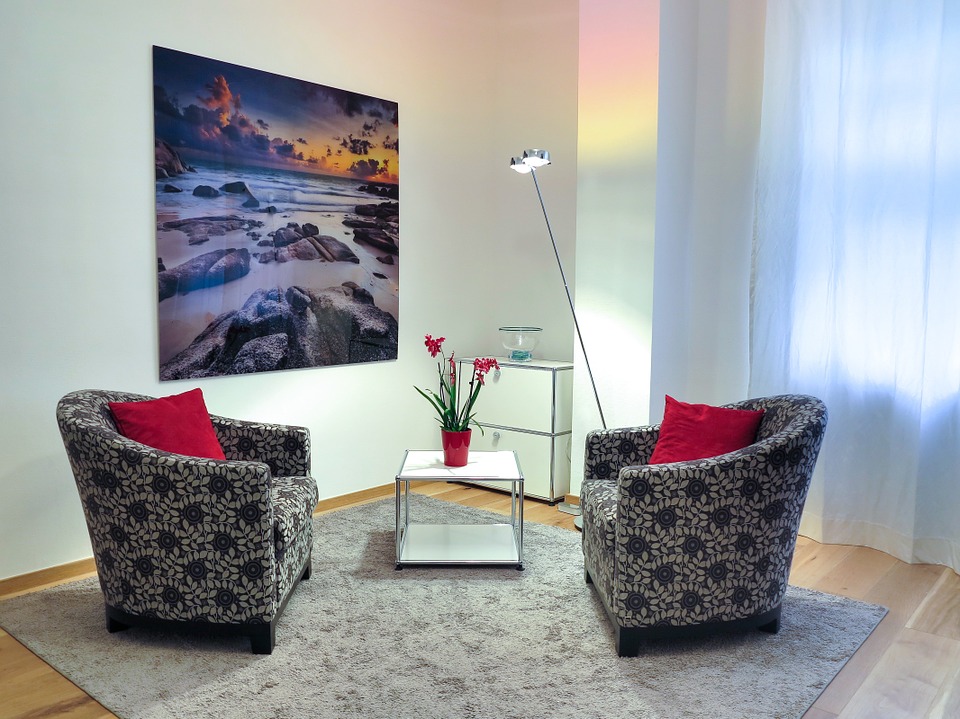Seeking mental help is not an easy thing to do. Not only do I know from personal experience (yes therapists need therapists, we’re human), but I’ve met many people, Africans included, who have thought about psychotherapy and have given up without trying. After all, you are first acknowledging that you have struggles. Second, you are recognizing that your issues are beyond your capacity to handle. Third, you’re asking for professional help. It takes some humility, and on the contrary to what some may think, a lot of courage and strength. (Look out for a future post on how to find a therapist.) I have found the following to be some of the reasons that prevent African immigrants from seeking mental help:
1. I'm not crazy
Growing up in Cameroon, my reference point for whom I thought had mental issues was the half-naked “mad man” on the street talking to himself, looking like he needed a shower, some new clothes, and some friends. I know you can relate. So, when I used to think about mental issues, that’s where my mind went. BUT, I have learned that mental health and illness are not static; you don’t “have it” or “don’t have it.” Think of mental health as you think of your physical health. Sometimes you get sick and you need to go to the doctor. Sometimes the healing process is short, other times it is long. However, unlike a physical illness that may have noticeable signs, mental issues are not as visible. The “mad man” on the street most likely had severe mental illness, but not everyone does. In some cases, we can prevent the illness from getting that severe or we can provide treatment to manage it. I will tell you more about how to identify mental issues in future posts. What you need to know now is we all go through different periods in life. And sometimes it can be beneficial to get external help through the emotional or mental turmoil.
2. The therapist won’t understand me especially if he/she is not African
I get where this concern is coming from and honestly for a few cases you may be right. BUT psychotherapists have been trained to understand human emotion, thought, behavior, personality, and the human condition. Therefore, they can provide you with some help. Don’t you think receiving some help is better than none at all? Culturally, some therapist may not be able to relate to some of your experiences, but they can speak to your experiences of suffering as a human being. Moreover, the American Psychological Association recognizes the need for therapists to be culturally sensitive, thus, there is more and more training to help therapists to be better at working with people from diverse backgrounds. I also think Africans can do a better job at speaking up to help their therapists help them (we’ll talk more about that in the future). And if they can’t help you (and I know some therapists can’t be helped), find a different therapist.
3. I cannot speak to a stranger about these things
I understand this as well. Culturally, there are certain things we have been trained to keep within the family, some things are forbidden to talk about with strangers. If that’s the case, let’s reason together for a little:
- Is keeping this thing to yourself causing you a lot of distress to the point of affecting your normal sense of functioning?
- Is there anyone in the family whom you can talk to about this?
- Is the person you can talk to able to truly listen and help you through it?
- What will happen if you talk to someone outside of the family about this?
- Is your fear real or imaginary? Is what will happen a real consequence to you and/or your family, or is it just in your head?
- After you have answered the first 5 questions, are you still convinced that you cannot speak to anyone outside of the family about this?
A good therapist will not force you to say things you’re not prepared to talk about. They will help you get to a place where you can talk about it even if it is uncomfortable. So get some help my friend!
4. They will tell other people about me
The issue about not being able to talk to strangers brings me to another fear. The belief that when you tell your therapist something, other people will find out. This is far from the truth. We, therapists, are bound by confidentiality, that means your therapists cannot under ethical guidelines tell someone else about you (using your name or references that will identify you) EXCEPT
- That person is their supervisor AND/OR they work in an agency that shares files, which is all to your best interest, so they know how best to help you
- You are in danger of harming yourself (suicidal) or harming someone else
- There is potential abuse or neglect of a child or a vulnerable adult – the guidelines here vary per state
There may be other regulations depending on the agency. You can ask your therapist questions about confidentiality.
Nevertheless, as a psychotherapist, we could lose our license if we breach confidentiality irresponsibly. We work really hard to make sure we respect your privacy. We won’t even say hi to you in public because that could potentially lead to someone knowing that you are a client. I once lived across from one of my clients and I had to respect that I could only acknowledge her as my neighbor but not as my client. Fortunately, she was pleasant and said hi to me so I would respond, and we would exchange a few surfacy comments about how we are doing.
5. My wife is my best shrink
I did a study during my graduate degree asking Ghanaian immigrants about whom they talk to when they have distressing issues. This was one person’s response, “My wife is my best shrink.” When I interviewed a Kenyan immigrant man (for a different study) who went to therapy quite frequently, he told me that his roommate would ask him why he went to therapy instead of talking to him. This Kenyan man’s response, which he didn’t express to his roommate, was because among other things, “I come here because of you.” In other words, his roommate was contributing to his distress.
As much as your spouse, roommate, or friends are people whom you can talk to, sometimes they fall short, not because they don’t love you. But because they are the problem, or they just don’t have the resources or insight to give you what you need. This can be especially difficult if you are seeking help from Africans in the U.S. who do not understand various factors of the American system that you need help with. Additionally, with the business of life in the U.S., when someone is dealing with mental and emotional issues, it can be really strenuous on others especially when they don’t know how to help.
This is not to say you shouldn’t lean on others for support, please please do. Your social support plays a huge role in positive mental health.
6. I can’t afford it
Last but certainly not least, a huge reason why people don’t seek help is because they can’t afford it. That is a legitimate reason and I have been there myself. There are probably more available resources than you are aware of. Look out for my next post on ways to find affordable counseling.
I’m sure I missed some reasons that prevent people from seeking help.
Please, tell me more in the comments below. What are some reasons that prevent you or someone you know from seeking professional mental help?




6 Responses
Good day Prof. This is great!!
Culturally it is hard for Cameroonians to tell the world they are weak and cannot handle their problems. There is also a stigma attached to those who visit therapists. The police and other government entities can also demand files from therapists so what you discussed there can be surmoned
John, you voice some real concerns here: vulnerability, stigma, and fear of one’s records being summoned. It is rare that the government demands files unless it is for some federal jobs or if there is a court case that may require the therapist’s witness. Anyway, I started this blog to address these concerns, so thanks for helping direct my future posts.
Excellent piece! As mentioned earlier, one may have to consider how most sub-Saharan Africans view the world and define it ( think Mudimbe in ‘The invention of African”). We should also consider the powerful forces such as religion who combined with poverty and ignorance to lead a large segments of our communities to either ignore or stigmatize any mental related issues…
Great points Guy! Religion, poverty, and ignorance definitely play a role in how our communities view mental issues. Thanks for highlighting these factors and such a good book reference.